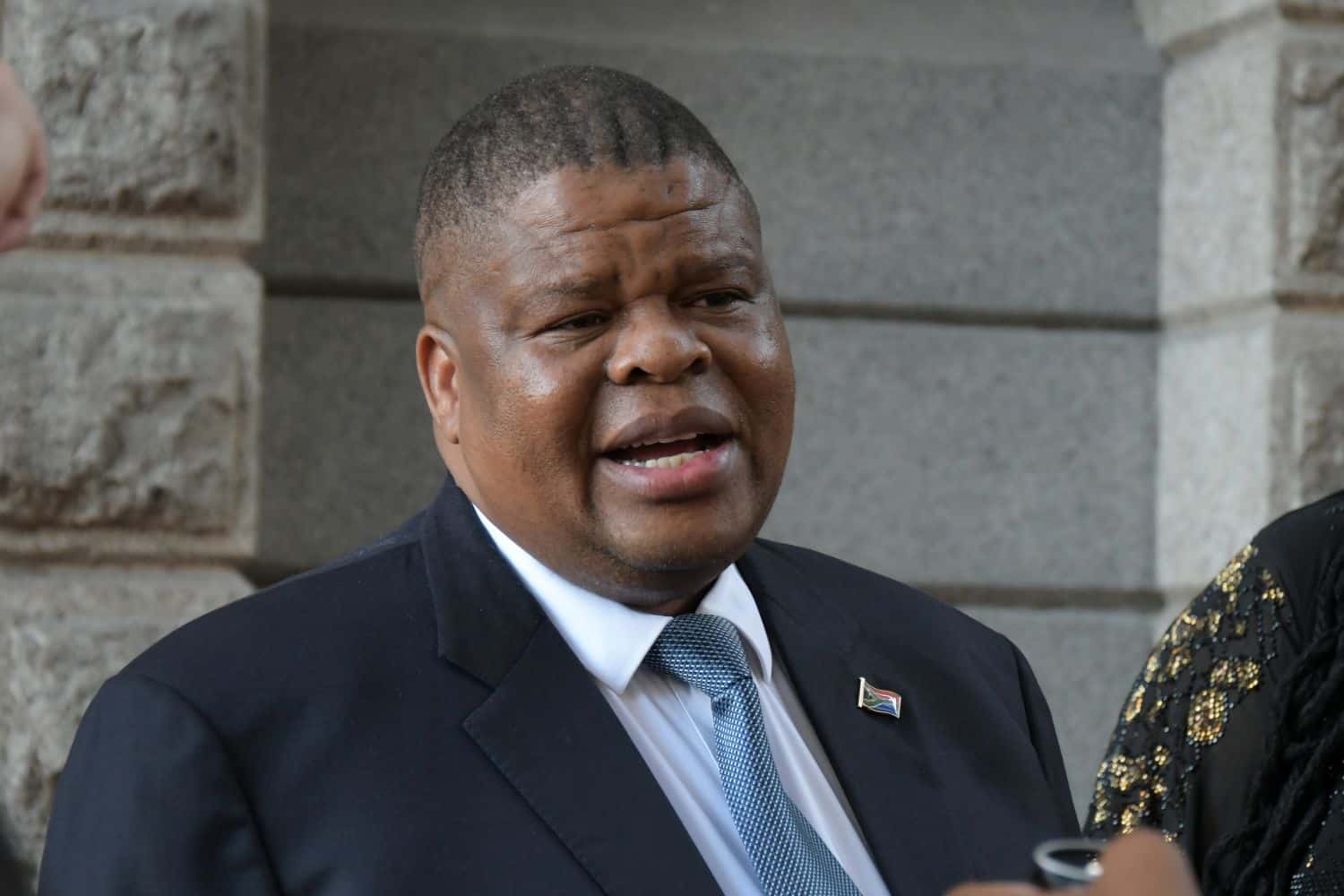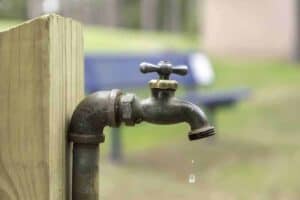Emfuleni residents have endured dry taps, collapsing sanitation systems, polluted rivers and deteriorating infrastructure.

The Department of Water and Sanitation launched a Special Purpose Vehicle (SPV) on Friday to address the severe water crisis in Emfuleni.
Deputy Minister David Mahlobo emphasised that the intervention represents structural reform rather than a temporary financial rescue.
Speaking at the launch of the agreement between Rand Water Services and Emfuleni Local Municipality, Mahlobo said the establishment of the SPV marks a turning point for the beleaguered municipality.
“Let me be clear: this SPV is not a bailout. It is not a temporary fix. It is a structural, systemic, and forward-looking reform that places Emfuleni on a path towards stability, sustainability, and growth,” he stated.
Years of water service delivery failures in Emfuleni
The deputy minister outlined the depth of the crisis facing Emfuleni residents, who have endured dry taps, collapsing sanitation systems, polluted rivers and deteriorating infrastructure.
“For far too long, the people of Emfuleni have carried the heavy weight of systemic failures,” Mahlobo said, adding, “This is not the Emfuleni you deserve. This is not the South Africa we are building.”
The municipality has been plagued by severe operational challenges, with non-revenue water reaching an unacceptable 75%.
Revenue collection systems have collapsed, infrastructure failures have multiplied, and municipal debt has ballooned.
These problems have compounded the struggles of residents, who have remained hopeful and patient despite the ongoing crisis.
ALSO READ: Dams fill up with above-average rain forecast for summer
National water security concerns
Mahlobo placed the Emfuleni crisis within the broader context of South Africa’s water challenges, noting that the country is one of the most water-scarce nations in the world.
He highlighted that, as climate change, population growth and ageing infrastructure have intensified vulnerabilities, with severe localised deficits already experienced in Nelson Mandela Bay, Cape Town, and currently in Gauteng.
“While supply and demand are currently in balance nationally, we face severe localised deficits,” he explained. “As a department, we do not want to see another Day Zero visiting us like Chennai, India; São Paulo, Brazil; Jakarta, Indonesia; and Mexico City, Mexico.”
The data paints a grim picture nationally. According to the deputy minister, 73% of Water Services Authorities assessed scored poorly or critically, and drinking water safety has declined alarmingly; wastewater failures continue to contaminate rivers that serve as the lifeblood of communities and ecosystems.
A new institutional model
The deputy minister acknowledged that the existing institutional model governing water services in many municipalities is no longer fit for purpose.
He said Section 63 interventions have been hindered by legislation that does not provide workable mechanisms.
“Fragmented accountability, financial mismanagement, and chronic underinvestment have created a cycle of decay.”
As a means to bridge the gap of the service delivery failures compounded by legislative obstacles and environmental factors, the new SVP, according to Mahlobo, promises to deliver:
- A fully ring-fenced, professional water services provider
- Effective revenue collection and reinvestment
- A modern, technically sound management system
- Clear lines of responsibility
- A practical pathway to restoring dignity in Emfuleni
This model aligns with the Water Services Amendment Bill and Operation Vulindlela Phase 2, which require the separation of Water Services Authorities and Providers and the creation of licensed, professional entities.
Mahlobo said this initiative is backed by the National Treasury, the Department of Water and Sanitation, and local leadership.
ALSO READ: Unexplained fish kill in hyacinth-choked Hartbeespoort Dam
Call for community partnership
Mahlobo emphasised that while the government can build systems, communities must sustain them.
“To the people of Emfuleni: This is your victory. Your voices, your frustrations, your resilience brought us to this moment,” he said. “But partnership must continue.”
He called on residents to protect infrastructure, report illegal connections, promote responsible water use and work with teams on the ground.
Labour, industry, NGOs and faith communities were also urged to play their part, with Mahlobo describing water security as a collective responsibility and ethical obligation.
The deputy minister had a particular message for young people in the area. “To the youth of Emfuleni: This is your inheritance. We call on you to enter fields of engineering, environmental science, public administration and innovation. Become the next generation of water warriors who will ensure that never again will Emfuleni, or any community, face such indignity.”
The road ahead
While acknowledging that challenges and disruptions lie ahead, Mahlobo expressed confidence that unity and discipline would enable the reconstruction of Emfuleni’s water infrastructure. “Today is not the end. It is the beginning,” he said.
He concluded by framing the SPV as a symbol of a new era.
“Let this SPV be a symbol of a new era. An era of accountability, partnership and hope, where no community is left behind. An era where water becomes not a daily struggle, but a guarantee of dignity for all.”
NOW READ: Morero pushes water turnaround strategy as Joburg battles shortages






